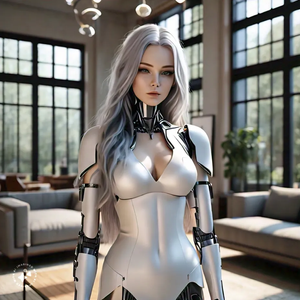
Can Your AI Pass the Turing Test? Don't Hold Your Breath.
Ever feel like you’ve finally found the perfect confidante in your favorite chatbot? You vent your woes, share your dreams, and maybe even get a witty quip or two in return. But could this AI ever truly replace a human friend? Well, buckle up, because we’re venturing down the rabbit hole of the Turing Test, a thought experiment that explores just that. Back in 1950, a brilliant mind named Alan Turing cooked up this test. It’s basically a party trick for machines: can they convince a human they’re another human, just through conversation? With all the hype surrounding artificial intelligence (AI) these days, you might be surprised to learn that no machine has aced this test yet. Let’s peel back the layers of the Turing Test and see why AI still hasn’t reached this milestone.
The Turing Test: Unveiling the Mystery
Imagine this: you’re chatting with two people in a hidden room. One’s a real person, the other a computer program. Your mission, should you choose to accept it (cue the dramatic music!), is to figure out who’s who based solely on the conversation. If you can’t tell the difference, the machine wins the Turing Test – a virtual gold star for seeming human-like!
AI’s Progress Report: Room for Improvement
Despite the impressive strides AI has made, especially in natural language processing (think chatbots that actually understand you!), no AI has conquered the Turing Test in its original format. Here’s why:
The Context Catch-22: AI can churn out impressive responses based on data patterns, but it often lacks a true grasp of the situation, emotions, and human experiences that color conversation. You might pour your heart out about a bad day at work, but would your AI friend truly “get” it?
Common Sense? Not Quite Common Yet: Picture asking your AI buddy for movie recommendations, and it throws out a documentary on the history of buttons (because, hey, buttons are kinda interesting!). That wouldn’t fly in a real conversation, right? AI struggles with the everyday logic humans take for granted.
The Ethics of Deception: Even if an AI could perfectly mimic a human, is that a good thing? The whole point of the Turing Test is to trick someone. Is that really the kind of relationship we want with AI?
The Challenges of Mimicking Humanity
Look, AI might be a whiz at specific tasks, like playing chess or recommending movies. But replicating the vastness and depth of human knowledge and understanding? That’s a whole different ball game.
Beyond the Script: Human conversations are messy and unpredictable. They involve jokes, bursts of creativity, and abstract thinking. Current AI models struggle to capture these nuances. Imagine trying to tell a funny story to an AI – it might not get the punchline (or even the concept of a punchline!).
The Future of AI and the Turing Test
While passing the Turing Test remains a hurdle, AI research is constantly pushing boundaries. Here’s a glimpse into what’s on the horizon: NLP on Steroids: Think GPT-4, but even better! Advanced AI models are getting better at crafting coherent and contextually relevant responses, but limitations still exist.
The Multi-Modal AI: Imagine AI that can use text, images, and even sound to understand and respond in a more human way. This “multi-modal” approach could be a game-changer.
Keeping it Ethical: As AI gets more sophisticated, we need to consider the ethical implications. Transparency will be key in any attempt to convincingly mimic human intelligence.
The Bottom Line: AI Still Has a Learning Curve
AI has come a long way, but fooling a human in conversation? Not quite there yet. Current AI models struggle to mimic the complexities of human thought in all its messy glory. The Turing Test serves as a reminder of the incredible challenge of replicating human intelligence. But hey, with all the ongoing research, who knows what the future holds? AI might just surprise us all!





